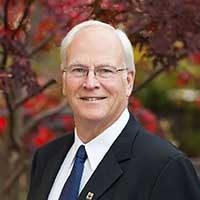
There are plenty of opportunities for technical people to advance their careers in industry, especially in large organizations where a dual career ladder formally exists. What one has to do is to identify mentors at senior levels whose job you may be interested in. At the same time, you should work towards closing your capability/skill gap by (1) continuing learning, expanding your technical knowledge and skill, (2) understanding company business & strategic direction, internal organizations and how they function, and external industrial trends, and (3) improving your soft skills even through you don’t plan to be a manager. As you are improving yourself, you can proactively start seeking special assignments and/or job rotations. This will increase your visibility and enhance your chance to pursue a career as a technical leader, principal scientist or research fellow.

Industry needs leaders at all levels and there is a plethora of opportunities to lead without being a “manager.” Consider taking a leadership role in implementing a new technique or being an expert user of a piece of equipment or software; volunteer to spearhead a new safety initiative that you feel passionate about or coordinate your department or company’s seminar series. Finding your passion is critical to finding your happiness. I suggest identifying 5 people with different career tracks that you could virtually meet with on a Friday afternoon (pre-COVID I would have suggested for lunch) and ask them what they do on a daily basis as well as what they like and dislike about the role. If their role sounds interesting, ask them to introduce you to 5 more people. Hopefully this exercise will help you to learn more about the opportunities that excite you. Excitement often opens doors!

To start, talk with your manager, and share your interests and ask for advice. Success in the non-management track is typically a product of publishing, generating/writing patents and speaking at conferences such as Gordon Conferences in your field or ACS National and Regional Meetings, and using those talk opportunities to build your network and opportunities. Finally, talk with scientists at your company/organization or in your network who are supportive and have succeeded.
This article has been edited for length and clarity. The opinions expressed in this article are the author's own and do not necessarily reflect the view of their employer or the American Chemical Society.
ACS Career Consultants are experts and leaders working in the field of chemistry who have volunteered to support other ACS members’ career development through one-on-one career counselling. They can stimulate your thinking, ask important career planning questions to help clarify goals, provide encouragement, teach strategies for making meaningful career decisions, and aid you in your job search. Connect with an ACS Career Consultant today!
Copyright 2020 American Chemical Society (All Rights Reserved)








